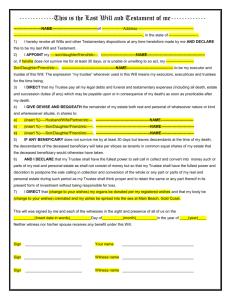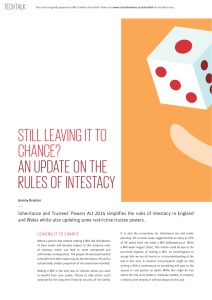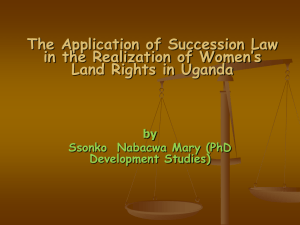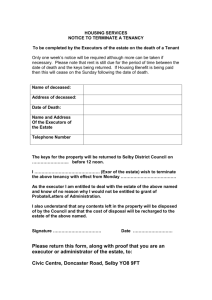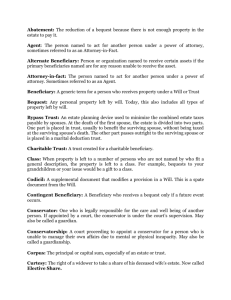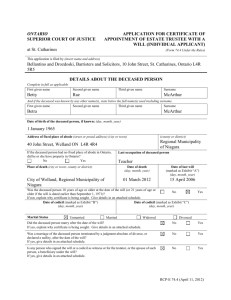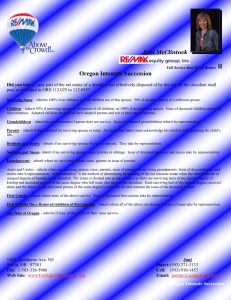intestacy legislation changes
advertisement
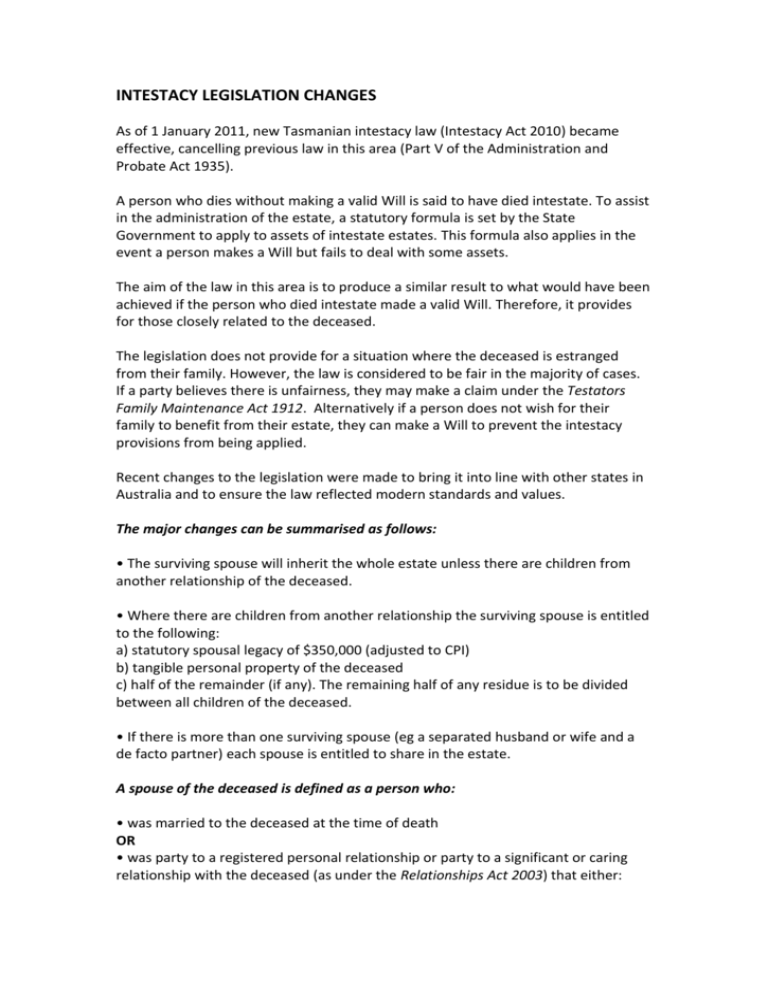
INTESTACY LEGISLATION CHANGES As of 1 January 2011, new Tasmanian intestacy law (Intestacy Act 2010) became effective, cancelling previous law in this area (Part V of the Administration and Probate Act 1935). A person who dies without making a valid Will is said to have died intestate. To assist in the administration of the estate, a statutory formula is set by the State Government to apply to assets of intestate estates. This formula also applies in the event a person makes a Will but fails to deal with some assets. The aim of the law in this area is to produce a similar result to what would have been achieved if the person who died intestate made a valid Will. Therefore, it provides for those closely related to the deceased. The legislation does not provide for a situation where the deceased is estranged from their family. However, the law is considered to be fair in the majority of cases. If a party believes there is unfairness, they may make a claim under the Testators Family Maintenance Act 1912. Alternatively if a person does not wish for their family to benefit from their estate, they can make a Will to prevent the intestacy provisions from being applied. Recent changes to the legislation were made to bring it into line with other states in Australia and to ensure the law reflected modern standards and values. The major changes can be summarised as follows: • The surviving spouse will inherit the whole estate unless there are children from another relationship of the deceased. • Where there are children from another relationship the surviving spouse is entitled to the following: a) statutory spousal legacy of $350,000 (adjusted to CPI) b) tangible personal property of the deceased c) half of the remainder (if any). The remaining half of any residue is to be divided between all children of the deceased. • If there is more than one surviving spouse (eg a separated husband or wife and a de facto partner) each spouse is entitled to share in the estate. A spouse of the deceased is defined as a person who: • was married to the deceased at the time of death OR • was party to a registered personal relationship or party to a significant or caring relationship with the deceased (as under the Relationships Act 2003) that either: a) existed for a continuous period of at least 2 years OR b) resulted in the birth of a child Who administers an estate when there is no Will? An administrator is appointed by the Supreme Court of Tasmania. State legislation dictates the order of persons who are entitled to apply, based on their relationship to the deceased. The Public Trustee may administer an estate where there is no Will. An administrator has the responsibility to obtain Letters of Administration (formal authorisation to administer the estate from the Supreme Court), collect assets, meet liabilities, lodge tax returns, determine legal next of kin, distribute assets according to the statutory formula and account to the beneficiaries. It is an administrator’s responsibility to ensure that the administration of the estate is continuous and completed within a reasonable time. It is important to understand that even given the recent changes to the intestacy legislation; these provisions may not accurately reflect your wishes. If you do not have a valid Will, the people you most want to benefit from your estate still may not be adequately provided for. Also it may take longer and cost more to administer your estate if there is no Will. Anybody 18 years of age or over who has legal capacity should make a Will so they can choose who administers and benefits from their estate. You can contact the Public Trustee to prepare your Will on 1800 068 784 Preparing your Will with the Public Trustee means an experienced organisation will manage the administration of your estate from start to finish, working closely with your beneficiaries to carry out your wishes. It is our job to listen, consult, offer advice and make sure everything is dealt with as smoothly as possible. At the Public Trustee you know if it is important to you it is important to us.


